Communications minister: Azerbaijan, Malaysia may become digital gateways between ASEAN, CIS - INTERVIEW
- 20 November, 2025
- 16:43
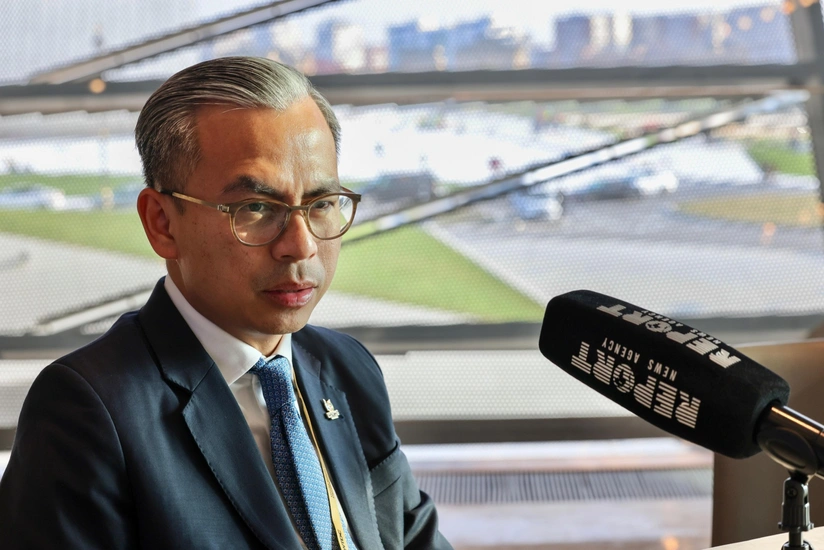
Azerbaijan and Malaysia have maintained strong and friendly relations for many years, gradually reaching new heights thanks to a growing interest in cooperation in digital technologies, cybersecurity, and infrastructure projects. Malaysia's experience in rapidly implementing 5G, developing a secure and accessible internet, and strengthening the digital economy makes it an important partner for Azerbaijan in its digital transformation.
These topics have gained particular relevance at the World Telecommunication Development Conference (WTDC-25), which is taking place in Baku and has become a platform for expanded dialogue between the two countries. As part of the conference, Malaysian Communications Minister Ahmad Fahmi bin Mohamed Fadzil spoke with Report about the prospects for bilateral cooperation, Malaysia's experience in digital development, and expected steps to strengthen the partnership between the two countries.
- What are the main goals of your visit to Baku?
- We're here for the WTDC, but also to highlight our candidature for re-election to the ITU Council. Malaysia has completed one term, and we have gained a lot in our participation. And we also wanted to see how we can share a lot of our progress and our successes in not only expanding connectivity in rural, very remote areas, but also making this connectivity much more meaningful, ensuring that it's not only widely available internet, fast internet, but also cheap and safer internet..
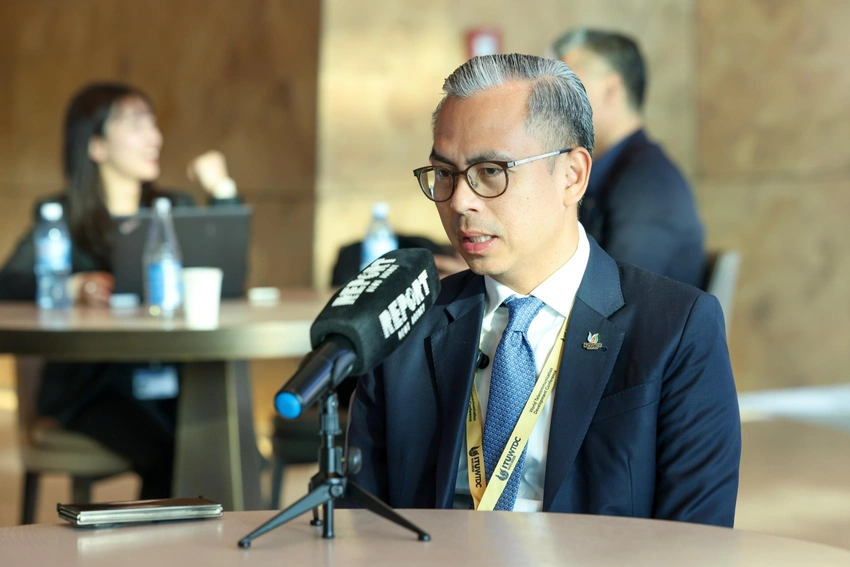
- You met with Azerbaijan's Minister of Digital Development and Transport, Rashad Nabiyev. What were the results? Were any preliminary agreements reached?
- We shared a lot of Malaysia's success in rolling out 5G. It took us about 10 months to roll out. We were at 26% in February of 2023, and we went up to 80% by coverage by December of that year. Since then, we have a second network, and we have seen the rollout in four months reach almost 60%. I have ensured that 5G, for those who want to migrate from 4G and use 5G, Malaysian telecom users don't pay extra, and we have the second fastest internet in Asia-Pacific after South Korea.
We are one of the ten countries in the world that have the cheapest internet, about two cents per gigabyte. So very, very cheap internet. How is this possible? It's a collaboration between the government, the regulatory body, the mobile network operators and the public. So we see that the internet is widely used in Malaysia. We have a population of almost 35 million people, but we have 46 million SIM card registrations.
So it shows that there are a lot of users in Malaysia. And the digital economy is about more than 25% of our GDP. We discussed prospects for cooperation and expect to sign a memorandum of understanding between our ministries-only the formalities remain. The possibility of exchanging personnel to learn from each other's experience is also being considered. The signing could take place during Malaysian Prime Minister Anwar Ibrahim's visit to Baku. I've been informed that the OIC meeting will be held here next year-an opportune occasion.
- How do you assess the current state of cooperation between Malaysia and Azerbaijan in the field of communications and digital technologies?
- I think it's good and there's a lot of room for us to grow the cooperation, especially between the regulators. We have a lot of experience with rolling out 5G, so Azerbaijan can study, can see what went right, what could have been better with Malaysia's rollout.
I think right now, probably there can be a lot of cooperation on the issues around cybersecurity, on the issues around making sure we combat scams together and enhancing the digital economy. So, there's a lot that we can do together. Previously, I was reminded that Minister Rashad, a long time ago, was very instrumental in helping the ASESAT satellite launch, and there was a lot of cooperation with a Malaysian satellite company, Miyasat.
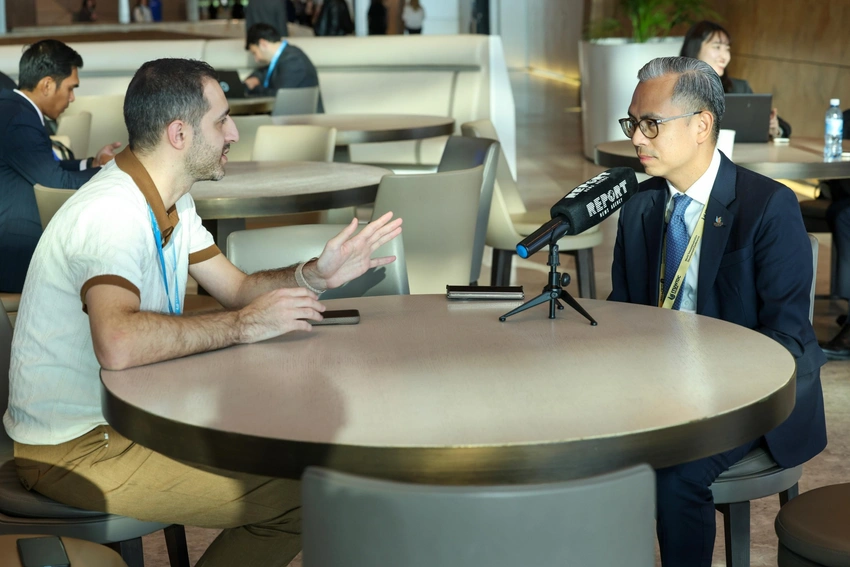
So if we started many years ago, I think there's a lot of room for us to expand on this cooperation now, especially in the field of digital infrastructure and digital economy.
- In your view, which areas of partnership between the two countries have the greatest potential - cybersecurity, telecommunications, e-government, or the exchange of experience in digitalisation?
- I think most of these areas, there's a lot of opportunity. On my flight here, there were many Malaysians who were very interested in coming. And I think in the coming years, there will be more and more Malaysians who are very interested in coming and visiting Baku and the surrounding region.
I'm also informed that there are many students from Azerbaijan who come to Malaysia to see our universities, our private institutions of higher education. So there's a lot of opportunity there as well. And, probably, we can develop some of these areas quite quickly. So I look forward to having more discussions with my counterpart and also between our two ministries.
- Is Malaysia considering the possibility of joint projects with Azerbaijan in the field of digital infrastructure or innovation?
- Yeah, I think this is quite possible. But first, we have to sign an MOU so that more discussions and work can take place. So I hope we can get to that not too long from now.
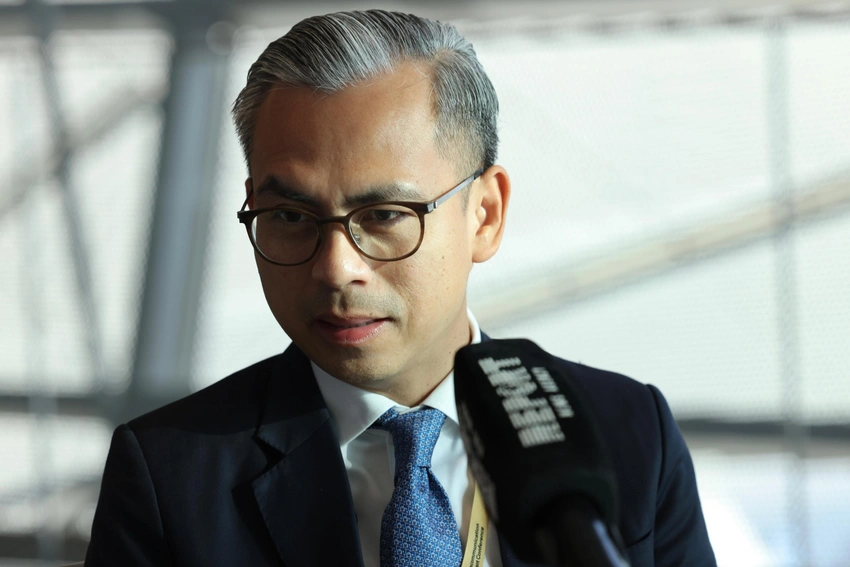
- Are there any plans to expand the exchange of expertise between specialists of the two countries, for example, through joint working groups, training programs, or academic initiatives?
- Yes, we can afford. We have an academy, and we have a training facility at our Malaysian regulators' headquarters. We have also built up an ASEAN knowledge centre or expert centre on 5G. So at the very least, for a start, this is one area where we can see a lot of people-to-people and working-level cooperation. That's a good place to start.
- Can Malaysian ICT companies expect to participate in projects in the Azerbaijani market, and what conditions could facilitate this?
- We used to have Malaysian companies that invested here and had a presence here. Our oil and gas structures had been present here before the pandemic but then they had to scale down a lot of their operations. I think there's a lot of opportunity, especially for ICT and for digital services, so we can firm up on some of the cooperation. It's quite possible, because I think Azerbaijan and Malaysia have a long relationship, and I think we should take full advantage of this relationship to really look at expanding trade cooperation, even in the field of digital economy.
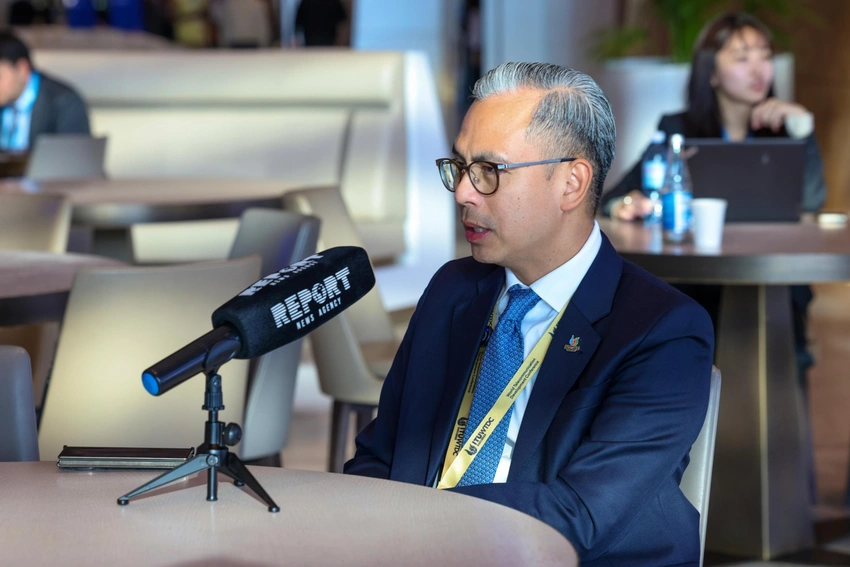
- In your opinion, how can Malaysia and Azerbaijan work together to develop the digital economy in the region and strengthen ties between Southeast Asia and the South Caucasus?
- Azerbaijan is a gateway to the rest of the CIS region, and Malaysia is a gateway to the rest of ASEAN, There's a very good proposition, something that we should look at very seriously. I think there's a lot of opportunity. Malaysia has always been a friend of Azerbaijan, and I think there's a lot that we can learn from each other and expand.
Both Malaysia and Azerbaijan have a little bit of homework to do, but I think it's time that we increase and strengthen the relations between our two brotherly countries.
